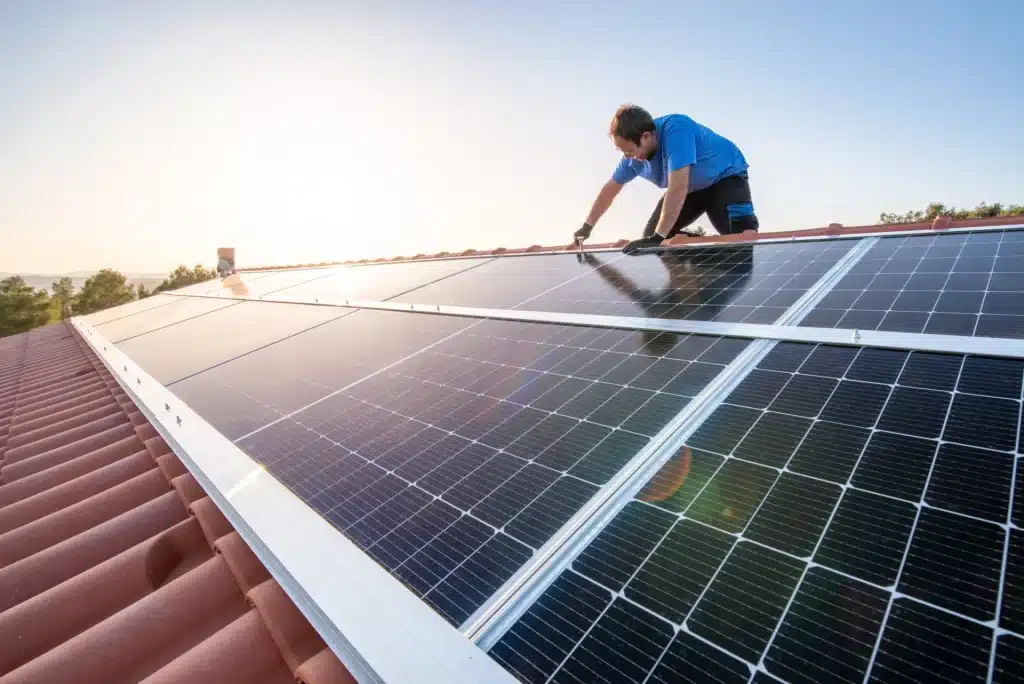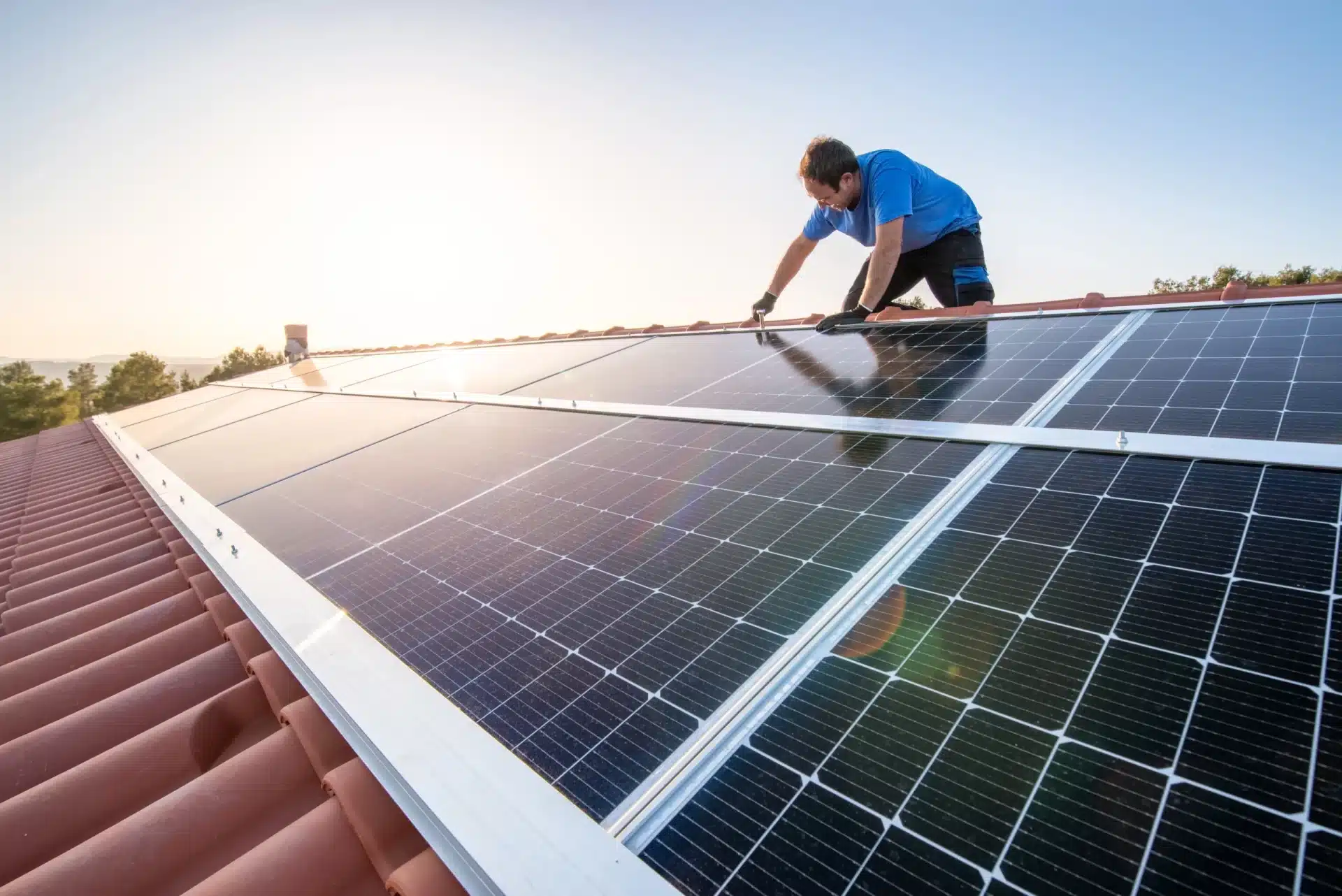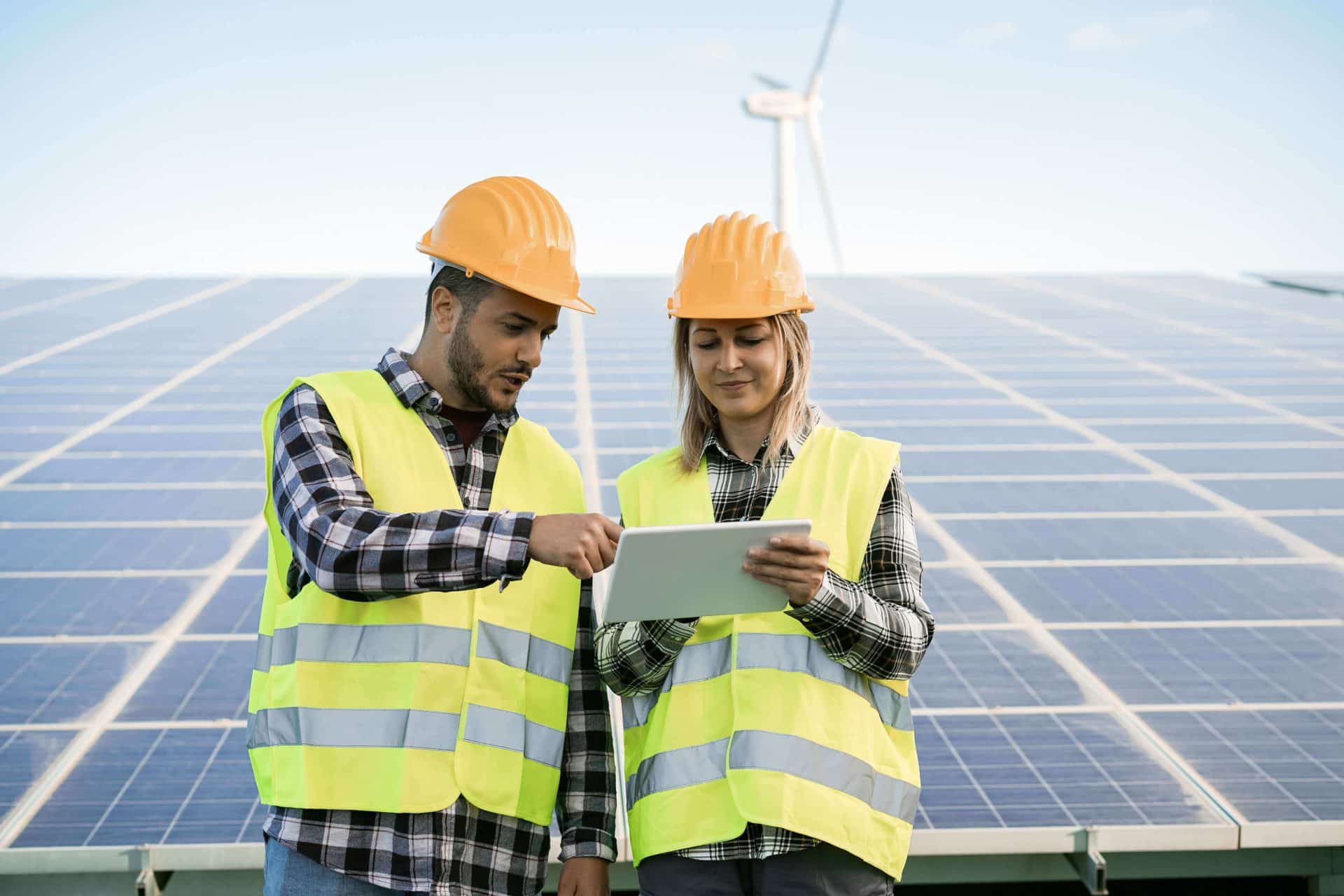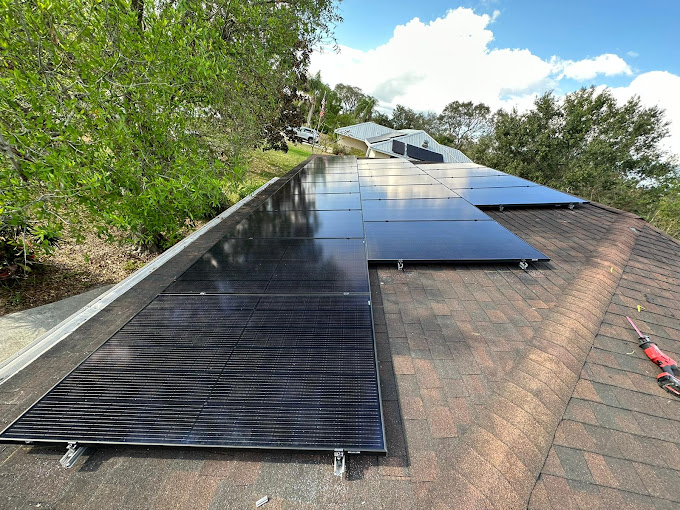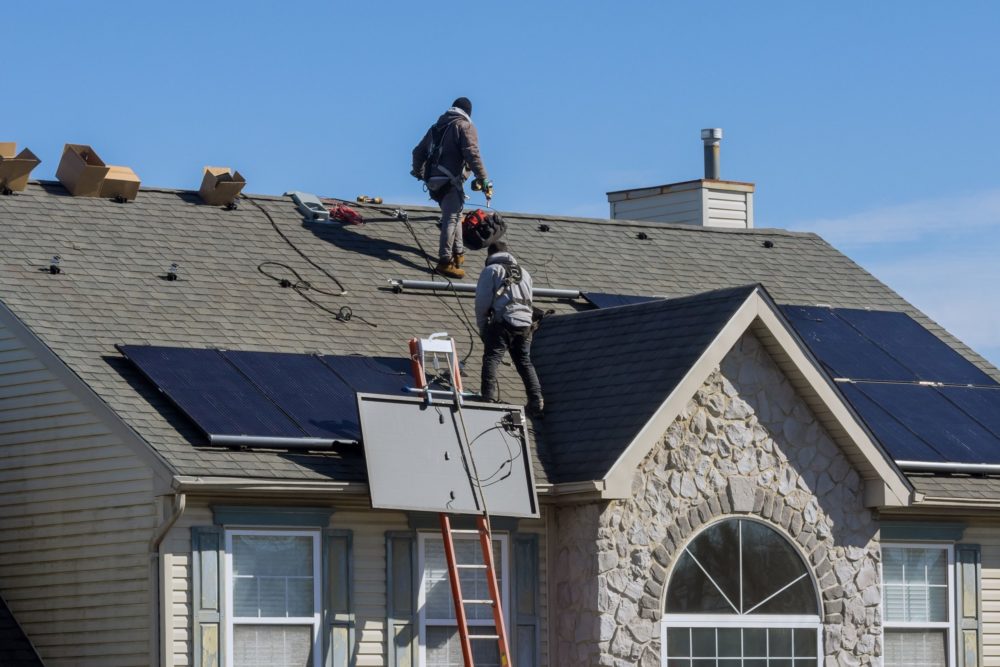In recent years, the growing concern over climate change and the rising cost of electricity has led many homeowners to consider solar energy a viable and sustainable solution. With the increasing popularity of solar power, DIY solar installations have gained momentum. However, while DIY projects can be a great way to save money and foster a sense of accomplishment, installing solar panels is not one of those projects that can be taken lightly. In this blog post, IntegriSolar, the leading solar installation company in Ocala, FL, will delve into why solar installations are unsuitable for DIY enthusiasts and explore the complexities and potential dangers. First, let us discuss why people tend to gravitate toward DIY solar installations.
Unraveling the DIY Illusion: Understanding Why People Tend to Think Solar Installation is a DIY Task
As we discussed earlier, in recent years, the growing awareness of renewable energy sources and the need to mitigate climate change has sparked a surge in interest in solar installations. As more individuals seek ways to reduce their carbon footprint and harness the sun’s power, an interesting phenomenon has emerged – the perception that solar installation is a do-it-yourself (DIY) task. This perception, while enticing to some, often leads to misguided attempts at installing solar systems without professional assistance. Let us explore why people think solar installation is a DIY task and the potential consequences of such beliefs.
- Accessibility of Information: One of the primary reasons for the prevailing notion that solar installation can be done independently is easy access to information in the digital age. The internet is filled with many articles, tutorials, and videos providing step-by-step solar installation guides. With a simple search, individuals can find various resources that walk them through the process, making it appear straightforward and achievable.
- Simplified Marketing: In an effort to make solar energy more appealing and accessible to the masses, some solar companies and manufacturers have marketed their products using the “DIY-friendly” angle. They present solar panels and kits as user-friendly, implying that anyone can install them without needing professional expertise. This marketing tactic, though well-intentioned, can inadvertently give consumers the impression that solar installation is a simple task.
- Cost-Saving Motive: Another significant factor contributing to the perception of solar installation as a DIY project is the desire to save money. Solar panel systems can be a significant investment, and some individuals believe that by eliminating professional installation costs, they can reduce overall expenses. This cost-saving motive can overshadow the complexities of a proper solar installation, leading them to overlook potential risks.
- Overestimation of DIY Skills: Many individuals are confident in their DIY skills and believe they can handle almost any home improvement project. They might have completed various tasks around their homes, making them overestimate their abilities. Consequently, when confronted with a solar installation, they might assume it falls within their capabilities, underestimating the specialized knowledge and expertise required for a safe and efficient installation. In short, it is best to leave it to the experts.
IntegriSolar, the foremost solar installation company in Ocala, FL, wants to highlight the importance of relying on experts for your solar needs. While saving money and the wealth of available information may entice some to consider DIY solar installation, paying attention to the complexity and safety aspects is crucial. Properly installing solar panels requires specialized technical expertise and experience, which our trained professionals possess.
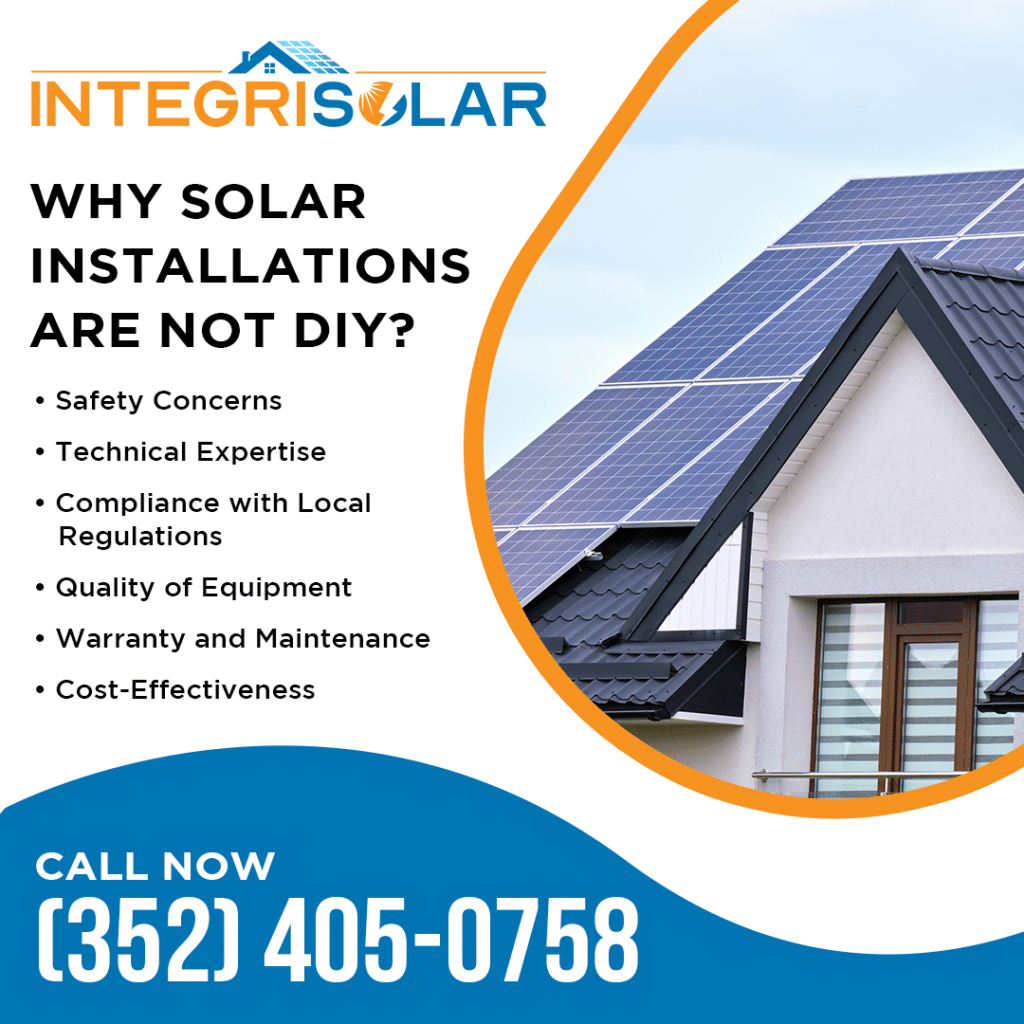
When you choose IntegriSolar as your solar installer, you are making a wise decision for the safety and efficiency of your solar system. Our team ensures a secure and effective installation process, giving you peace of mind that your investment is in capable hands. By entrusting us with your solar installation, you can count on optimal system performance and long-term savings for your home. Our experts will tailor a solar solution to your specific needs, taking into account the unique characteristics of your property and maximizing the sun’s energy to benefit you. Remember, going solar is a significant decision, and the expertise of a reputable solar installer like IntegriSolar is invaluable. Get in touch with us today, and let us guide you.
Next, let us go through the factors which show that solar installations are not a DIY project in detail.
Solar Installation: NOT a DIY Project
Expertise and Technical Knowledge
One of the most significant reasons solar installations should not be DIY endeavors is the required level of expertise and technical knowledge. Solar panel systems are complex electrical systems that involve various components, such as solar panels, inverters, charge controllers, batteries (in some cases), and wiring. Understanding electrical circuits, load calculations, and system design is crucial to ensure the system works efficiently and safely.
Our professional solar installers at IntegriSolar undergo extensive training and certification to acquire the necessary skills and knowledge to handle these intricate systems. We are well-versed in local building codes and regulations, ensuring the solar installation complies with safety standards and permits. Attempting a DIY installation without this expertise can lead to mistakes, inefficient performance, and potential safety hazards.
Precision and Alignment
Installing solar panels involves precise measurements and alignment to capture the maximum sunlight. Proper alignment ensures that the panels receive optimal exposure to sunlight throughout the day, maximizing energy production. Achieving the right orientation and tilt angles is essential to the overall efficiency of the solar system.
Solar installers at IntegriSolar use specialized equipment and tools to accurately measure angles and position the panels. DIY enthusiasts may lack access to such tools, leading to misalignment and decreased energy production. Additionally, incorrect installation could lead to issues like shading and reduced panel lifespan, further impacting the system’s efficiency.
Roof Integrity and Structural Considerations
Solar panels are typically mounted on the roof of a building, and their weight and mounting system can stress the roof structure. A professional solar installer, such as from IntegriSolar, will evaluate the roof’s integrity and ensure that it can handle the additional load of the solar array. If the roof is not sturdy enough, reinforcement or alternative mounting solutions may be required.
Inadequate consideration of roof integrity and structure during a DIY installation could lead to roof damage, leaks, or even collapse in extreme cases. Only experienced professionals can assess the roof’s suitability and make informed decisions to protect both the solar array and the integrity of the building.
Electrical Safety Hazards
Working with electrical components carries inherent risks, especially with high-voltage systems like solar panel installations. Our solar installers are trained in electrical safety protocols and have the necessary equipment to ensure a safe installation process.
DIY enthusiasts may lack the knowledge to handle electrical connections properly, leading to electrical malfunctions, fires, or electric shock hazards. Safety should always be a top priority when dealing with electricity, and entrusting solar installations to professionals at IntegriSolar mitigates these risks.
Warranty and Insurance
IntegriSoalr offers the longest warranties in the industries we operate in. In case of any issues or defects, these warranties provide protection and ensure that repairs or replacements are carried out without a significant financial burden on the homeowner.
DIY installations generally do not come with such warranties, and any damage or malfunction may not be covered by insurance. If something goes wrong, the homeowner would be solely responsible for the expenses, which could be substantial.
While saving money and taking pride in a DIY project is appealing, solar installations are not DIY endeavors. The complexity and technical knowledge required, precision and alignment demands, roof integrity considerations, electrical safety hazards, and warranty and insurance concerns make it clear that professional solar installers are necessary for a successful, efficient, safe solar panel installation.
At IntegriSolar, we emphasize the need for professional solar installation. Investing in a professional installation not only ensures the long-term functionality of the system but also provides peace of mind to homeowners, knowing that their solar investment is in the hands of qualified experts. As we strive to transition to a greener and more sustainable future, let’s leave solar installations to the professionals and embrace the expertise that helps us harness the sun’s abundant energy responsibly and efficiently. Now that we have discussed the most important problems with a DIY solar installation, let us discuss another interesting topic: how these factors affect a home’s resale value.
DIY Solar Installations and Their Impact on Home’s Resale Value
As renewable energy gains popularity, many homeowners consider installing solar panels to reduce electricity costs and contribute to a greener environment. While DIY (Do-It-Yourself) projects have their appeal, the decision to embark on a DIY solar installation warrants careful consideration, especially regarding the potential impact on the home’s resale value.
One of the primary concerns with DIY solar installations is the perceived need for more professionalism and credibility. Homebuyers often look for assurance that their investment in solar panels is backed by reputable equipment and reliable installation. Professionally installed solar systems such as those from IntegriSolar come with warranties, certifications, and compliance with industry standards, giving potential buyers confidence in the system’s performance and longevity.
In contrast, DIY installations may lack these credentials, leading to doubts about the system’s quality and safety. Homebuyers may be apprehensive about purchasing a property with a DIY solar installation due to uncertainties about its reliability, potential hidden issues, and the overall safety of the electrical setup.
Furthermore, DIY solar installations might not be optimized for energy efficiency or aesthetics. A well-designed and installed system could positively impact the property’s curb appeal, potentially deterring potential buyers. In contrast, professional installers consider the architectural aspects of the property, ensuring an aesthetically pleasing and well-integrated solar system that complements the overall design.
Home appraisers and real estate agents also consider the quality and reputation of the solar installation when evaluating a property’s value. A professionally installed solar system from IntegriSolar will be seen as a value-adding feature that can positively influence the home’s appraised value. On the other hand, DIY installations might carry a different weight in the eyes of appraisers and may not contribute as significantly to the property’s overall worth.
Hence, homeowners should be mindful of a DIY solar installation’s potential impact on the property’s resale value. Choosing a professional solar installation ensures the system’s safety, performance, and compliance and enhances the home’s marketability and attractiveness to potential buyers. By investing in a reputable solar installation company like IntegriSolar, homeowners can enjoy the benefits of solar energy while safeguarding the long-term value of their property. A well-executed professional solar installation can be a significant selling point that appeals to eco-conscious homebuyers and positively impacts the home’s overall resale value.
Again, let us reemphasize and list the common pitfalls of DIY solar installations.
10 Common Pitfalls of DIY Solar Installations
Solar power has become increasingly popular among homeowners as the world embraces renewable energy solutions. Many individuals are drawn to harnessing the sun’s energy to power their homes, and DIY solar installations seem attractive and cost-effective. While the prospect of cutting costs and taking control of your energy production is alluring, it is crucial to be aware of the potential pitfalls that DIY solar projects can present. Here, IntegriSolar, the trusted solar installation company in Ocala, FL, will explore the ten most common pitfalls of DIY solar installations and offer valuable insights on how to steer clear of them.
- Lack of Adequate Planning
The success of any solar installation hinges on careful planning. Unfortunately, many DIYers fail to allocate sufficient time to plan their projects thoroughly. Skipping crucial steps such as site assessment, calculating energy needs, and analyzing potential shading issues can lead to subpar system performance or complete failure.
- Poor System Design
Designing a solar system is a complex task that requires a deep understanding of various factors, including local climate conditions, panel orientation, inverter selection, and wiring configurations. DIYers often need to pay more attention to the importance of proper system design, which can result in reduced energy output and inefficiency. To overcome this challenge, engaging with solar professionals like IntegriSolar is the best action to take and create an optimal system design tailored to your needs.
- Substandard Equipment Selection
Opting for cheap or low-quality solar panels, inverters, and other components may seem cost-effective but can lead to serious long-term issues. Inferior equipment may have shorter lifespans, lower efficiency, and inadequate warranties. At IntegriSolar, the reliable, locally owned solar installation service in Ocala, FL, we focus on selecting reputable brands and high-quality equipment to ensure the longevity and efficiency of your DIY solar installation.
- Incorrect Installation Techniques
Improper installation is a significant concern in DIY solar projects. Mounting solar panels incorrectly, using subpar fasteners, or neglecting to weatherproof connections can lead to safety hazards and damage to the system. Inadequate wiring practices can also pose serious electrical risks. To avoid this pitfall, strictly adhere to the manufacturer’s guidelines and local building codes and seek assistance from experienced solar installers at IntegriSolar to ensure a safe and efficient installation.
- Lack of Electrical Knowledge
Working with electrical components can be dangerous without the necessary knowledge and experience. DIYers attempting to handle electrical tasks with adequate expertise may avoid electrical shocks, system malfunctions, or fire hazards. Hence, consulting with a licensed electrician or a solar professional is essential when dealing with electrical components in your solar installation.
- Inadequate Permitting and Inspections
Failure to obtain the necessary permits and pass inspections is a common pitfall in DIY solar projects. Local authorities often require permits to ensure the installation meets safety and building standards. Ignoring these requirements may lead to legal consequences, fines, or forced removal of the system. IntegriSolar is well aware of the local rules, and we comply with local regulations to ensure a smooth and lawful solar installation.
- Overlooking Safety Precautions
Solar installations involve working at heights and handling heavy equipment, which can be risky if proper safety measures are not taken. DIYers may overlook safety precautions, leading to accidents and injuries. Professional solar installers always prioritize safety by using appropriate safety gear and following safety guidelines when working on a solar project.
- Improper System Sizing
DIYers often miscalculate the size of the solar system needed to power their homes adequately. Oversized systems incur unnecessary expenses, while undersized systems may not meet energy demands. Hence, it is necessary to assess your energy consumption, considering future energy needs accurately. Consult with solar experts to avoid such pitfalls.
- Ignoring Warranty and Maintenance
Neglecting to understand the warranties of the solar components and disregarding regular maintenance can lead to unexpected expenses and reduced system performance. To avoid maintenance/repair expenses, one must be familiar with warranties. IntegriSolar offers the best warranties in the solar industry. We offer a 25-year production guarantee, assuring you that any issues with your solar system will be fully covered without any questions or hesitations.
- Unrealistic Cost Savings Expectations
While DIY solar installations may save money on labor costs, some DIYers may have unrealistic expectations about the overall savings. Factors such as the initial investment, equipment quality, and energy consumption patterns will influence the return on investment.
Overall, if you lack the necessary technical expertise or want to minimize the risks associated with a DIY solar installation, consider seeking professional assistance from IntegriSolar, the expert solar installation company in Ocala, FL. Working with our experienced solar installers ensures that your system is installed correctly, efficiently, and safely.
Next, let us discuss the tax incentives available to property owners going solar!
Tax Incentives
Federal Solar Investment Tax Credits are a tax benefit provided by the United States government to encourage the adoption of solar energy by reducing tax liabilities. This credit allows individuals to claim 30% of the total expenses related to solar equipment, including materials, labor, and installation costs.
Awareness of specific eligibility requirements is essential to qualify for this credit. For instance, the ITC applies only to those who directly purchase their solar photovoltaic (PV) system, excluding individuals who choose to lease or finance it. Additionally, the financial benefits of the tax credit can vary based on income levels, with higher-income individuals potentially receiving limited or no benefits.
Regarding solar incentives in Florida, no statewide solar panel rebates are available. However, tax credits can help make solar installations more affordable. One such benefit is the Sales Tax Exemption, which exempts Floridians from paying the 6% sales tax on solar panels. Florida also allows net metering, enabling utility customers who generate solar energy to sell Renewable Energy Credits (RECs) back to the solar company, which can be applied to energy bills or paid out within a 12-month period.
Also, Florida’s Property Tax Abatement for Renewable Energy Property incentive is currently scheduled to remain in effect until 2037. This incentive allows homeowners to be fully exempt from paying property taxes for improving their homes with solar panels.
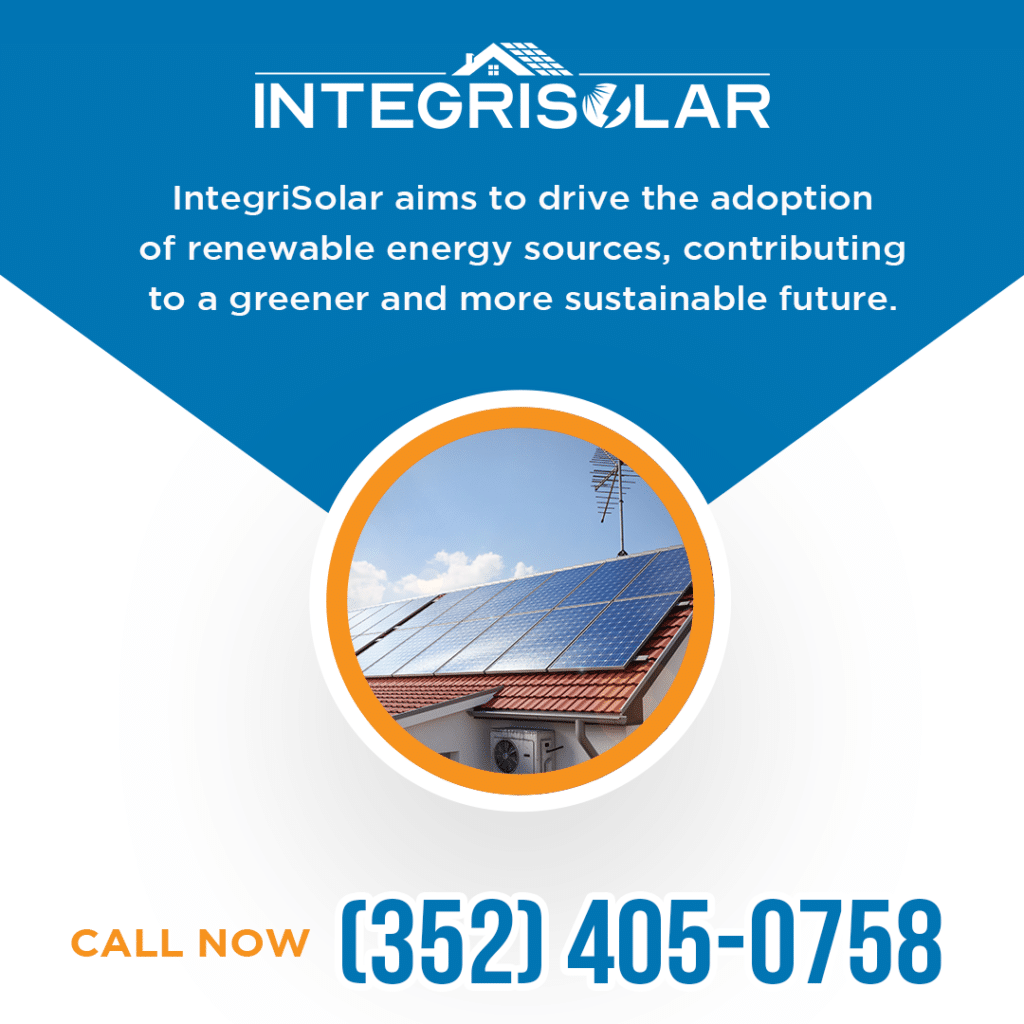
Other than these, special incentives may be available locally to particular regions. Contact your locally owned solar installation company, IntegriSolar, to know more about the details of rebates and discounts you can avail of while going solar. Your search for a solar installation service in Ocala, FL, ends at IntegriSolar!
Frequently Asked Questions
Is it advisable to attempt a DIY solar installation?
While DIY projects can appear fulfilling, a DIY solar installation carries significant risks and complexities that demand professional expertise. At IntegriSolar, we prioritize safety and efficiency, and our experienced team is well-equipped to handle every aspect of the installation process. DIY installations can lead to safety hazards and reduced system performance. Our professionals have undergone rigorous training to handle complex electrical work safely and efficiently, ensuring compliance with local regulations and building codes.
Choosing professional installation not only ensures safety but also enhances long-term system performance. Our team has access to high-quality solar equipment and better deals that can lead to cost savings. Additionally, professionally installed systems typically qualify for various financial incentives and tax credits, which DIY installations might miss out on.
Can I save money with a DIY solar installation?
While DIY solar installations might appear cost-effective initially, they often result in unexpected expenses and compromise system efficiency. At IntegriSolar, we believe investing in professional installation can lead to more substantial long-term savings. Our team designs solar systems tailored to your unique energy needs, maximizing performance and reducing payback periods.
Our expertise allows us to identify potential issues and avoid costly mistakes during installation. We adhere to industry best practices and quality standards, ensuring your solar system operates optimally for years to come. Moreover, our professional network and partnerships with reputable equipment suppliers enable us to secure competitive prices on high-quality solar components, leading to cost savings for you.
Are DIY solar installations eligible for incentives and tax credits?
At IntegriSolar, we strive to help our customers take advantage of available financial incentives and tax credits. However, it’s important to note that some incentives require professional installation to qualify. By choosing our professional services, you can be confident that your solar system meets all eligibility criteria, maximizing your savings potential.
Our team stays up-to-date with the latest regulations and incentive programs, ensuring that your solar installation adheres to the necessary guidelines for receiving rebates, tax credits, and other benefits. We guide you through the entire process, ensuring you receive the maximum financial return on your investment.
How can DIY installations affect my home’s resale value?
At IntegriSolar, we understand that a professionally installed solar system adds value to your property and boosts its resale potential. DIY installations might not carry the same credibility as a certified professional installation. Potential buyers often prefer systems with warranties and certifications, as they provide reassurance about the system’s reliability and performance.
By choosing our professional installation, you are investing in a system that comes with warranties, which not only offer protection but also increase the overall appeal and value of your property. Our expertise in design and installation ensures that your solar system aligns with industry standards, making it an attractive selling point for potential buyers.
What are the safety risks associated with DIY solar installations?
Safety is a top priority at IntegriSolar, and our trained professionals follow strict safety protocols during solar installations. DIY solar installations have significant safety risks, including electrical hazards, rooftop falls, and potential accidents during installation.
Our team is experienced in handling high-voltage electrical components and working at heights, ensuring that your solar installation is carried out safely and without risk to you or your property. We use proper safety equipment and techniques to prevent accidents and ensure a secure working environment. By choosing our professional services, you can have peace of mind, knowing that your solar system is installed safely and efficiently, adhering to all safety standards and regulations.

